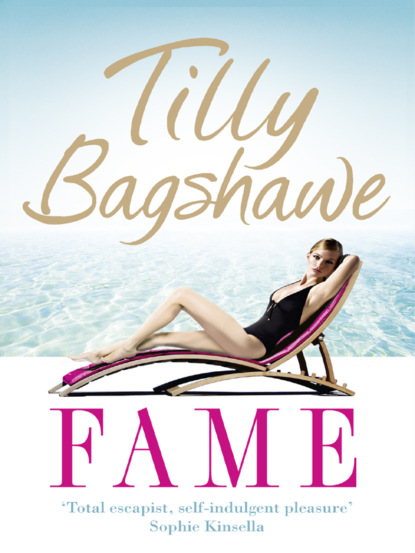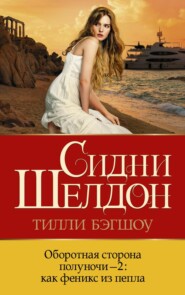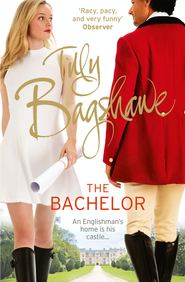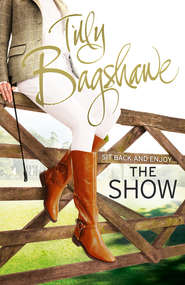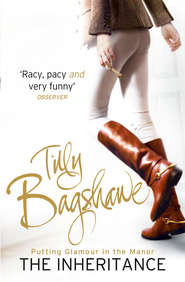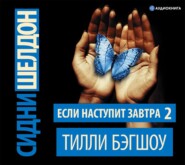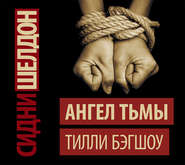По всем вопросам обращайтесь на: info@litportal.ru
(©) 2003-2024.
✖
Fame
Автор
Год написания книги
2018
Настройки чтения
Размер шрифта
Высота строк
Поля
After Eton, Viorel dutifully followed his mother’s bidding and went up to Cambridge to read medicine at Peterhouse. But that was where Martha Hudson’s fairytale abruptly ended. After joining Footlights, Cambridge’s famous dramatic society Viorel was talent-spotted at the end of his first year by a London agent, and immediately cast in a British rom-com, Bottom’s Up. The movie went straight to video, but Viorel Hudson’s smouldering performance as a Casanova con man was good enough to get him noticed by Terence Dee, then the most powerful casting agent in Hollywood. In his mid-fifties, with a shaggy mop of dyed blond hair and a penchant for wearing pastel sweaters draped casually around his shoulders, Terence Dee was as flamboyantly gay as any Vegas drag queen, and it would be fair to say that his early interest in the edible young Englishman was not strictly professional. But clearly, Terence had no hard feelings over Viorel’s lack of hard feelings, for his own sex in general, and Terence in particular. He swiftly found the boy both a manager and an apartment in LA, on condition that Viorel drop out of university and pursue his acting career full time.
Viorel did not need to be asked twice. After a brief, frosty farewell with his mother over lunch in London (and a longer, warmer one with his girlfriend Lucinda, his co-star on Bottoms Up, and the woman who had finally relieved him of his virginity; despite his astonishing good looks, Viorel was a late bloomer), he boarded a flight to LAX and never looked back.
That was five years, six movies and countless hundreds of women ago, and in all that time Viorel had not returned to England once. Largely because of Martha, but also because he wanted to leave his shy, lonely childhood self behind. US audiences might idolize him for his Britishness: that clipped, Hugh Grant accent that for some unfathomable reason seemed to make American girls swoon, but Vio Hudson considered himself an Angelino through and through. From day one he had adored Los Angeles: the sunshine, the optimism, the gorgeous, liberated, oh-so-available women. Best of all, no one in LA had ever heard of Martha Hudson MP. And, though the US press had inevitably got hold of the story of Viorel’s childhood adoption, with the help of a first-class PR team, Vio had at last managed to shake off the image of victimhood that had haunted him all his life. Yes, he was adopted. Yes, his mother was a politician. So what? All that mattered now was that he was a star, a player, a winner. Hollywood had offered Viorel Hudson the second reinvention of his short life, and this time, it was on his own terms.
He’d made it. And he had no one to thank for his success but himself.
After hanging up on his mother, Viorel was home in ten minutes. He had left Rose Da Luca in bed at the Chateau (but not before paying the bill in full and ordering breakfast and roses for her the next morning – no need to be a dick about these things). As much as he loved bedding beautiful women – and Rose really had been beautiful, in a class of her own – Viorel was pathological in his need to wake up alone and, whenever possible, in his own bed. By using hotels for sex, he was able to satisfactorily compartmentalize his life and protect his privacy. His apartment, right on the sand at the end of Navy, a quiet, no-man’s-land between Santa Monica and Venice proper, was his sanctuary. Vio unashamedly adored the attention, glitz and glamour of Hollywood, but even he needed to know he could shut the door on the madness at the end of the day. Viorel Hudson the man was outgoing, sociable and charming. But the lonely, angry little boy he had once been still needed a fortress to retreat to.
Hidden from the street by a forbidding grey stone wall, into which was set a pair of prison-like, reinforced-steel security gates, Vio’s apartment was that fortress. Once inside, however, the feeling of space, light and openness was incredible. In the living room, floor-to-ceiling windows provided a jaw-dropping view of the ocean, shimmering grey-blue beyond the empty, white-sand beach. Give or take the occasional cyclist, no one came by this quiet stretch of coastline. Sipping his coffee on the balcony in the mornings, Vio often forgot he was in a city at all, with nothing but the distant caw of seagulls and soft crashing of waves to break the silence. The apartment wasn’t huge by movie-star standards: about two thousand square feet of lateral space. But Viorel had made it feel infinitely bigger with his simple, modern decor, the clean, geometric lines of his furniture and the calming palette of whites and greys that somehow managed to feel warm in winter and cool in summer. Had he not been an actor, he often thought he might have made a good designer, or perhaps even an architect. Every time he walked through his front door he felt a warm sense of pride, like a parent coming home to a beloved child. It was the first and only place he had ever felt completely at home, and he loved it.
Throwing his keys on the kitchen countertop, he kicked off his shoes and wandered back into the master bedroom. Dropping the rest of his clothes in a heap on the floor – Cecilia, his housekeeper, would clean up in the morning – he skipped the bathroom and crawled straight into the delicious comfort of his Frette sheets. His limbs throbbed with exhaustion, Rose had really put him through his paces, but he was too preoccupied to sleep.
Five and a half million dollars.
For five months’ work.
God bless Dorian Rasmirez!
Viorel had yet to meet the great director in person. Today’s deal had been entirely brokered through his agent. He wondered how soon he would be asked to come to a read-through, and when the locations would be finalized. Already, a bizarre aura of secrecy was growing up around the movie, with Rasmirez drip-feeding Vio’s agent information on a need-to-know-only basis. Then again, every director had their little quirks. And some things, presumably, could be taken as read. Because it was Wuthering Heights, an English classic, most of the film would have to be shot in England. In all other respects, getting the role of Heathcliff was a dream come true, but this was a homecoming that Viorel was not looking forward to. Worse still, according to his agent there were rumours swirling around that a lot of the interior scenes were to be shot at Rasmirez’s ancestral family castle in, of all places, Romania. It was an ironic twist of fate that both Viorel and his director should have been born in the same, distant, impoverished country. Although clearly, Rasmirez’s family must have come from the opposite end of the social scale to Viorel’s. My ancestors probably polished his ancestors’ silverware, thought Viorel wryly. If there was one country on earth that he felt less enthusiasm for than England, it was bloody Romania. He hoped the rumours were untrue.
What was true, confirmed a couple of days ago, was that Sabrina Leon had been definitively cast as Cathy Earnshaw, his leading lady. This also bothered Viorel. Sabrina might be the hottest thing on legs (or, in her case, on back) in Hollywood, but she was also a complete liability, the biggest Tinseltown train-wreck since Lindsay Lohan. Viorel couldn’t imagine what had possessed a seasoned pro like Rasmirez to hire her, especially with the flames from her most recent scandal still raging through the industry like a forest fire.
He must have got her on the cheap. Perhaps that’s how he can afford to flash so much cash at me.
He could have done without England, Romania and Sabrina Leon. But for five and a half million bucks, they were three crosses that Viorel Hudson was willing to bear.
Fuck you, Martha.
Switching off the light, he finally drifted into sleep, dreaming of England, Heathcliff and Rose Da Luca’s deliciously soft thighs.
CHAPTER THREE
‘I hate you! I fucking HATE YOU, you selfish bastard, I hate this house, I hate this country and I want a goddamn fucking DIVOOOOORCE!’
Dorian Rasmirez ducked as another priceless piece of Byzantine porcelain flew past within millimetres of his left ear before smashing spectacularly against the bedroom wall.
‘Jesus Christ, Christina!’ he yelled. ‘Calm down.’
‘Calm down?’ Stark naked, her small, hard apple breasts jutting towards her husband like weapons, and her cute, pixie-like features contorted into a puce mask of rage, Chrissie Rasmirez had no intention of calming down. ‘Fuck you, Dorian, you self-centred cunt! You think you have the right to tell me what to do?’ Scanning the room for her next missile, her eyes lit on the ornately framed oil painting above the bed.
‘No, Chrissie, don’t!’ pleaded Dorian. ‘Not the Velásquez!’
Like a panther, Chrissie turned and pounced, leaping towards the painting with her perfectly Pilates-toned arm outstretched. Acting on instinct – there was no time to think – Dorian jumped after her, rugby-tackling her down onto the bed. Dorian Rasmirez was a big man, six foot plus in his socks, and with the sturdy, solid build of a labourer. At two hundred pounds, he was also almost twice the weight of his petite, gym-bunny wife. Even so, he struggled to contain Chrissie as she writhed, bit and kicked furiously beneath him, spinning herself around to face him so that she could claw his arms and back with her newly manicured talons.
What the hell am I going to do with her? thought Dorian despairingly. Anyone watching them fight – or rather watching Chrissie fight, while Dorian struggled vainly to defend himself – would have assumed it was he who’d been caught cheating, and not Dorian who had walked in on Chrissie in soon-to-be flagrante with one of the estate carpenters. Dorian was leaving for Los Angeles today and had come home early from his little local office in Bihor to say goodbye to his wife and daughter and finish packing. Walking into the master bedroom, he’d discovered his wife already naked in their bed, and young Alexandru, a nineteen-year-old local joiner, hopelessly overexcited as he tried to free his rock-hard erection from his Abercrombie jeans. At least the boy had had the sense to make a swift exit, leaving his shirt and boots behind in his eagerness to get out of there. He was probably on the other side of the Carpathian Mountains by now. But, as always when she was in the wrong and cornered, Chrissie Rasmirez had come out fighting, hurling abuse at her husband as if he were the one who’d been caught with his pants round his ankles.
Was it any wonder she had to take lovers, when Dorian was never here?
What did he expect when he kept her locked up in this godforsaken castle like Cinder-fucking-rella, while he gallivanted off, living the good life in LA?
She hated it here. She was bored, she was trapped, she was stifled. She was practically a single mother to Saskia, their adorable blonde-headed three-year-old girl. And so it went on. Before he knew it, Dorian found himself on the back foot, apologizing, comforting, explaining. He would get her more help with Saskia. He would make sure he came home more often. The thought of his darling Chrissie being touched by that boy, that kid, made him want to rip the guy’s throat out. But, at the end of the day, he blamed himself. I’m the architect of my own destruction, he thought miserably. I’m driving away the one thing I love more than anything else in the world.
Eventually, too exhausted to struggle any more, Chrissie went limp. Overwhelmed with anger and wildly sexually frustrated – she’d been looking forward to bedding Alexandru for weeks – she burst into tears. ‘I’m sorry,’ she sobbed into Dorian’s blood-spattered shirt. ‘It’s just that … you never look at me like you used to. You don’t notice me any more.’
Dorian was aghast. ‘Don’t notice you? That’s not true! How can you say that? I adore you.’
‘It is true,’ wailed Chrissie. ‘You leave me here all alone, day after day, with no life, no career, no escape. As if taking care of Saskia is all I’m good for.’
Dorian did not point out that with three full-time nannies on twenty-four-hour call, it was debatable whether Chrissie did, in fact, take care of Saskia.
‘When Alexandru looks at me he sees a woman, not just a mom. He makes me feel alive, Dorian.’
Dorian winced. ‘Stop.’ He pressed a finger to her lips. ‘Don’t ever mention that kid’s name to me again. Understand? Never.’ His eyes flashed with jealousy, the alpha male protecting his territory.
Chrissie responded instantly, her pupils dilating, her lips and thighs parting with naked, unconcealed lust. If she couldn’t have her teenage lover, her husband would have to do. ‘Show me you love me,’ she murmured.
At forty-four, Dorian Rasmirez might not have his nineteen-year-old rival’s Adonis-like body but, unlike Alexandru, he knew how to get his pants off in a hurry. Wriggling out of his jeans while Chrissie yanked his shirt off over his head, he was naked in seconds, thrusting himself inside her with the same passion, the same desperate, all-consuming longing he’d had for her since the first day they met. ‘You’re my woman,’ he moaned, running his hands proprietorially over every inch of her taut, boyish body. ‘I love you Chrissie. I fucking adore you.’
‘Show me,’ sighed Chrissie. She was already close to climax, eyes rolled back in her head, lost in some wild fantasy of her own. She’d been horny as hell for the hot little Romanian carpenter all morning. Being denied him, followed by the panic of discovery and the thrill of the fight with her husband (sparring with Dorian always turned her on) had propelled Chrissie’s already overworked libido into the stratosphere. Dorian always pulled out all the stops sexually when he was scared. When he wanted to, he could fuck like an Olympic champion, playing her body like Nigel Kennedy with a Stradivarius. Right now, stroking and teasing her, bringing her to the brink time and again and then pulling back, Chrissie knew she wanted him more than she’d ever wanted Alexandru, or any of her other lovers.
When he finally came, having brought her to orgasm twice, Dorian pulled her into his strong, bear-like arms and held her so tightly she could barely breathe.
‘I’ll do anything to keep you, Chrissie,’ he whispered. ‘Anything. You know that.’
‘Good,’ Chrissie purred, stroking his back. ‘Well, you can start by leaving me your Centurion card. I’ve decided to take a little trip to Paris while you’re away. Distract myself with a bit of culture. Lilly can take care of Saskia for a few days.’
Dorian’s heart sank. He fought back the urge to remind Chrissie that they lived surrounded by culture, and that she never showed the slightest interest in any of it. In this bedroom alone, apart from the Velásquez portrait above the bed and the exquisite Byzantine vase she’d just destroyed in a fit of temper, there were bookshelves stuffed with first-edition classics in English, Italian and French, a Dutch, hand-painted dresser that had once belonged to Marie Antoinette of France, and two framed folios of Handel’s Messiah, signed by the composer himself. The entire castle, this ‘prison’ that Dorian had ‘dragged’ Chrissie to, prising her away from her beloved LA, was a veritable Aladdin’s cave of treasures, with a collection of art and manuscripts to rival some of the greatest galleries and libraries in Europe. And it was all theirs. Not theirs to sell – the treasures could not legally leave Romania – but theirs to cherish, to appreciate, to pass down to the next generation. To Saskia, and perhaps one day – if Dorian could ever persuade Chrissie to try again – to a son, a little boy to carry on the family name.
The reality was that the only thing Chrissie Rasmirez was interested in in Paris were the overpriced clothes stores on the Avenue de Champs-Élysées. Last time she went to the flagship Louis Vuitton there she’d dropped over $100,000 in a single morning. If she tried that again this time, AmEx would demand Dorian’s cards back. But he was too scared to deny her, particularly after today’s close call.
‘Sure honey,’ he sighed, defeated. ‘I’ll leave the card. You go and enjoy yourself.’
Chrissie smiled triumphantly. ‘Don’t worry, darling. I intend to.’
Three hours later, as the Airbus A360 juddered and rattled its way up through the clouds, Dorian closed his eyes and tried to remember the relaxation techniques his therapist had taught him. Imagine yourself on a deserted, sandy beach. Waves are softly lapping at the shore. Listen to the rhythm of the tide. Let it soothe you. Feel the warm water caress your toes …
He opened his eyes. It wasn’t working. Reaching into his hand-luggage bag, he pulled out a Xanax and slipped it into his mouth, knocking it back with the dregs of his pre-takeoff champagne. The pill would take a while to kick in, but the alcohol was instantly soothing, as was the knowledge that he was leaving Chrissie and their problems behind him for five whole days. Not that this trip to LA was going to be some sort of vacation. On the contrary, the real battles would only start once he landed. But for the next ten hours at least, he had a chance to relax. If only he could remember how to do it.
A heavy-set man in his mid-forties, with dark hair greying at the temples and a warm, open face – not handsome exactly, but appealing in a rough-round-the-edges sort of way – Dorian Rasmirez was one of the most acclaimed film directors in the world. With his intelligent hazel eyes that narrowed into tiny slits when he laughed or got angry, his strong jaw and his off-kilter nose (he broke it in a football game in high school and had never got around to fixing it), Dorian was certainly no matinee idol. Yet there was something innately masculine about him that women found compelling – and had done long before he became successful.
Dorian had been born and raised in White Plains, New York, the only, much-beloved son of Romanian immigrant parents. Both his father, Radu Rasmirez, and his mother Anamarie had suffered unspeakable horrors under Ceausescu’s hardline communist dictatorship and had arrived in America with little more than the cash in their pockets. As members of two of Romania’s most prominent aristocratic families, the Rasmirezes and the Florescus, Radu and Anamarie had seen close family members arrested and shot. They had experienced first hand what it meant to lose everything: not just your wealth and privilege, but your home, your freedom, your right to live free from intimidation, imprisonment and torture. They came to America to escape the horrors of their pasts and to build a new life, and that’s exactly what they did.
Radu trained as a pharmacist, eventually opening a successful chain of small stores across Westchester County. His wife gave birth to their longed-for son, and devoted herself to the traditional role of homemaking, diving in to suburban American life with unexpected enthusiasm. It was largely thanks to Anamarie’s assimilation into New York culture and her love of all things American that Dorian grew up the way he did: preppy, hardworking, and blessed with a natural, quiet confidence that was the perfect complement to his impressive academic abilities. To any casual observer, Dorian Rasmirez came across as the epitome of American boyhood, from the tips of his loafers to the button-down collars of his Brooks Brothers shirts. He excelled at school, winning a place at Boston University where he majored in Dramatic Arts. By the time he graduated, he already knew he wanted to direct, and with his usual focus and determination, won a place at UCLA’s prestigious School of Theater, Film and Television. But beneath the glowing, all-American CV, Dorian was his father’s son as much as his mother’s. Radu Rasmirez had made a point of educating his son in their family history, painting a wildly romantic picture of their Transylvanian roots, and the fairytale castle that should by rights have been Dorian’s, if only the wicked communists hadn’t stolen it.
‘One day,’ Radu promised him, ‘the righteous will triumph in our homeland, and what is ours will be restored to us. When that day comes, Dorian, you will know what it is to live like a king. The honour and responsibility, the joy and the pain. We Rasmirezes will always owe a debt of gratitude to this country. But Romania remains forever in our hearts.’
Of course, to Dorian, ‘Romania’ was just a word, a mythical kingdom that his father had conjured up for him, from a past that the boy had never known and couldn’t understand. But he did understand how much their family heritage meant to Radu. In later years that sense of displacement, of homesickness and longing that he saw in his father, would heavily influence Dorian’s film-making.





